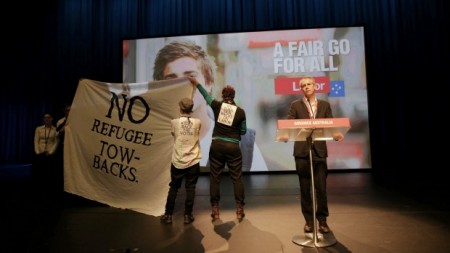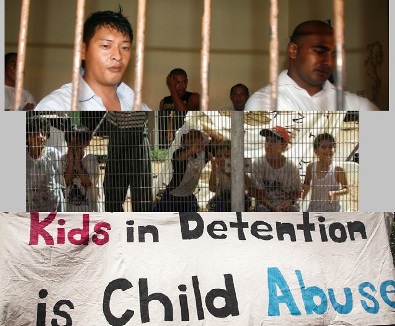Some thoughts on compassion

Our fears towards asylum seekers are unfounded, but they are enough to sway elections writes Professor Emerita Marian Quartly.
Psychologists argue that the world is suffering from compassion fatigue – secondary traumatic stress caused by overexposure to suffering. That’s got to be a first world problem! The poor worked out long ago that compassion was an emotion enjoyed by the rich. Compassion for the sufferings of the poor allowed the rich to gain the kingdom of heaven by helping the deserving – just a bit – without doing anything about the cause of their problems. To do that would have meant stopping being rich. Compassion was a way of allaying the guilt and fear that went with unacknowledged power. What Gramschi called ‘false consciousness’. And it still is.
Let’s look at compassion and refugees. Let’s acknowledge first up that we have a huge problem world-wide: wherever the borders of a stable, prosperous nation state are accessible to people from failing states stricken by poverty and conflict. From Mexico to the Mediterranean. Everywhere poor and oppressed people are moved by hope, desperation and envy to try to share the privileges and liberty of the rich. Who respond with fear, anger, guilt and compassion. OK, compassion is a better response than fear and anger. But these emotions are all of the same cloth, they all work to hide a basic contradiction. Failing states – failing for whatever reason – cannot satisfy the hopes of their citizens. And stable states cannot open their borders to all comers without self-destructing. Without getting into the issue of how far the west is actively exploiting the east and the south and the middle, it is clear that compassion is again closely allied with guilt.
Let’s look at Australian compassion and the refugee problem. Hardly a numerical problem in world terms, but enough to sway elections. Enough to rouse passionate anger amongst those who feel that their hold on the good things of Australian life is too tenuous to share. And angry compassion amongst those who cannot bear to hear yet again about drownings at sea and riots at so-called detention centres.
The compassion that focuses on individual suffering is blind. Blind to the motives driving the refugees: pity makes victims out of women and men who are in their own terms heroes seizing every opportunity to shape their fate. Blind to the political, social and economic ills that make possible death at sea the best option. Blind to the other half of the contradiction: the good things about Australian life are only ours because they are defended by means that cause suffering to would-be Australian citizens. Means like turnback, detention, deaths at sea . . .
Compassion is clearly a better response than anger. But a clear-sighted compassion should recognise that the immediate problem of the people trade requires some form of deterrence, and the longterm problem requires action to improve the political, social and economic conditions that drive people to become refugees. Not to mention the need for regional action, additional support for UN action, and an increase in the Australian intake of refugees, however they come.
And what about the angry Australians who fear the competition of newcomers for those good things of life that are not fully theirs? Their fears are not unfounded. Australian schools, hospitals, roads, public transport – all these are overcrowded and underfunded, and the economically vulnerable are the first to feel the loss. Once again it appears that the poor are always with us. Once again compassion is the easiest option for the powerful.
Like what we do at The AIMN?
You’ll like it even more knowing that your donation will help us to keep up the good fight.
Chuck in a few bucks and see just how far it goes!
Your contribution to help with the running costs of this site will be gratefully accepted.
You can donate through PayPal or credit card via the button below, or donate via bank transfer: BSB: 062500; A/c no: 10495969










